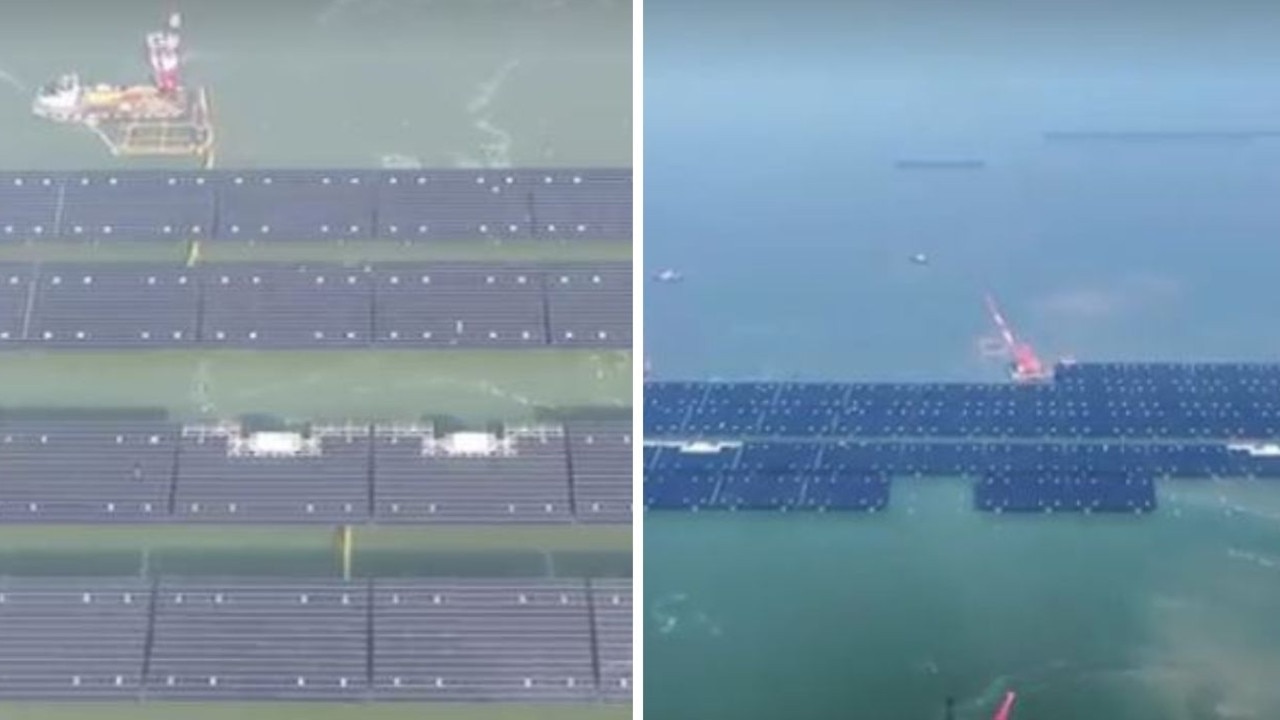‘It’s ours’: Jason Momoa’s plea to save ocean seabed from mining sparks world-first idea
Aquaman star Jason Momoa has opened up about his most important film — and it’s sparked a world-first way everyone can help.
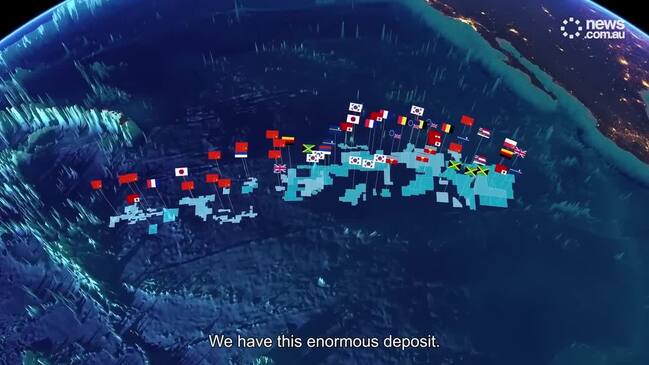
Sustainability
Don't miss out on the headlines from Sustainability. Followed categories will be added to My News.
Jason Momoa has described it as the most important film he’s ever done — and now it’s sparked a world-first way everyone can help with a simple click.
The Aquaman star, 45, narrates the award-winning 2023 documentary Deep Rising, which highlights the need to protect the ocean floor from mining companies and the workings of the secretive International Seabed Authority (ISA), which is responsible for nearly half of the planet’s surface.
“It was a pretty emotional experience,” Momoa said.
“I’d have to say it’s the most impactful film I’ve ever done in my life. It should have the most traction, it should change our perspectives.”
The Hawaiian actor said he wanted people “to be aware and not have the wool pulled over their eyes”.
“It’s really important that we act now because it’s for us and the next generation and it’s just not fair,” he said.
“Every single person in the world has ownership over this deep sea, it’s ours, and it’s going to affect us if we get in there and start disturbing it.”
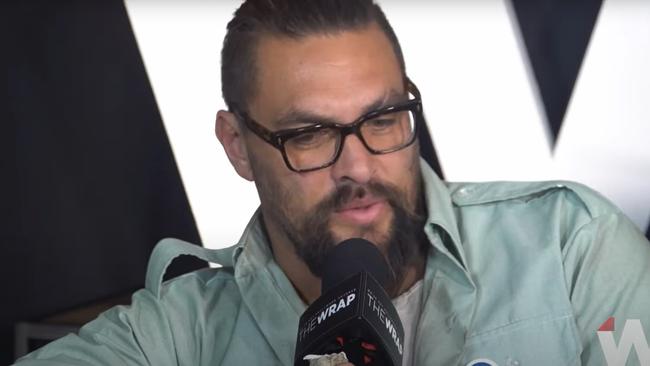
The documentary has inspired a global impact campaign called Deep Rising, led by Sydney-based advertising agency Emotive, which has devised a way for people to “reclaim the deep seabed from mining companies intent on turning the largest living space on Earth into the largest mining site on earth”.
Mining companies are attempting to turn a vast area of the Clarion-Clipperton Zone (CCZ), spanning more than three million square kilometres of the Pacific Ocean — equivalent to the size of India — into the world’s largest mine.
The “World’s Largest Ocean Dispute” campaign, launching on Wednesday, has divided the deep seabed into 8.17 billion GPS coordinates — representing one for every person on the planet — and mapped them across the seabed currently claimed for mining.
The deep seabed in the high seas where the CCZ lies is defined by the United Nations’ Convention on the Law of the Sea (UNCLOS), as the “common heritage of (hu)mankind” and must be “held in trust for future generations”.
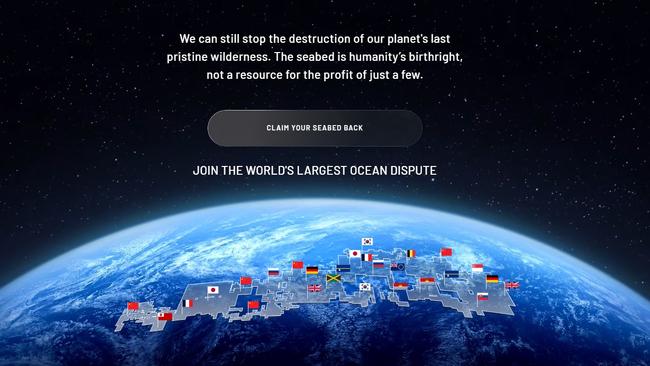
By visiting deeprising.com, people can freely claim their unique coordinates in about 60 seconds via a first-of-its-kind digital blockchain platform.
Users will receive a unique “DEEPSEA NFT / Birthright Certificate” stamped with their individualised GPS coordinates and featuring deep sea creatures. The non-tradeable NFTs will be available in 90 languages including many indigenous languages, and can easily be shared to social channels.
“By claiming your coordinates, as is your birthright, you are agreeing to protect the deep seabed on behalf of humanity,” Emotive says.
“In partnership with Web3 organisation, CoinWeb, your claim will be recorded on an eco-friendly blockchain for transparency and proof of stewardship, so that it can be used to elevate the voice of humanity and dispute the mining corporations’ claims to exploit the deep seabed for profit. This campaign will send a powerful message to nations, corporations and policymakers — the deep seabed is the common heritage of humankind and must be protected on behalf of humanity, not exploited to benefit a select few.”
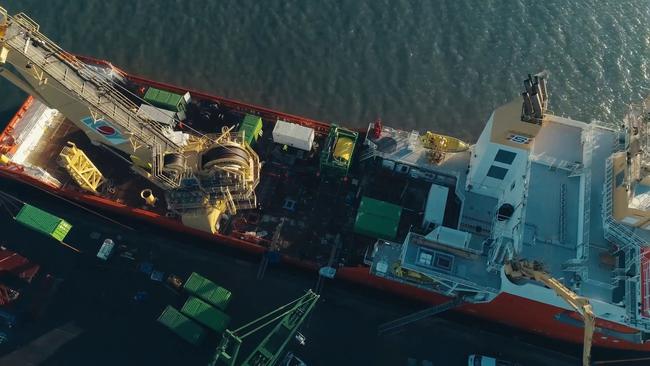
Deep Rising’s head of impact and co-executive producer Laura Clarke said it represented a “once-in-a-generation opportunity to change the course of history and prevent irreparable harm to our planet”.
“The World’s Largest Ocean Dispute campaign empowers humanity to formally challenge this ocean grab that’s threatening to destroy an irreplaceable and vital part of our planet’s ecosystem,” Ms Clarke said.
“The seabed cannot be owned and corporations don’t have the right to decide what happens to it — especially if the destruction impacts our lives and the lives of our children.”
Emotive’s creative director, Paul Sharp, was co-executive producer of the Deep Rising documentary, which was directed and produced by Matthieu Rytz.
“For such a complex and far reaching issue, it’s a simple solution,” Mr Sharp said.
“An insanely vast area of the deep seabed in the Pacific has been secretly divided up for potential mining which would be carried out by mining companies and their pro-mining nation sponsors. By dividing the deep seabed into 8.17 billion plot coordinates, we’re allowing all of humanity — the rightful shared owners of the deep seabed — the ability to claim it back and have their voices heard.”
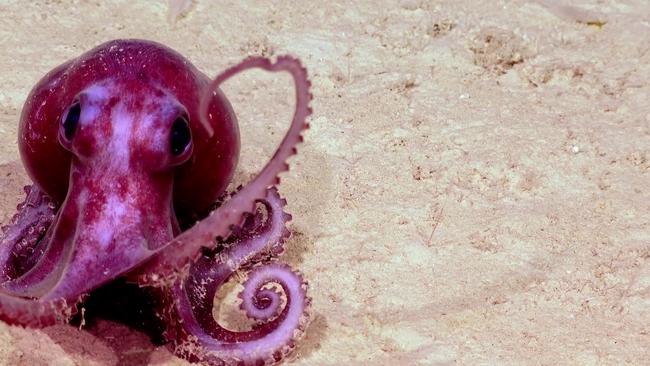
Earlier this year, Emotive unveiled a giant street mural by iconic Australian artist and musician Reg Mombassa and Apparition Media along with a call-to-arms to the global marketing industry to get involved.
Over the past eight months, JCDecaux, ARN, Channel 9, Foxtel, Mamamia, WeAre8 and Surfers for Climate have rallied to support with over $2 million of advertising and editorial committed in Australia, UK and the US so far.
The full Deep Rising documentary will also be made available to stream directly on deeprising.com from Wednesday, followed by Amazon Prime Video, Google Play, and Apple TV.
Wednesday’s launch coincides with the UN Climate Conference COP 29 and World Children’s Day.
“Emotive, alongside so many other pro-bono partners, are so proud to play a part in this project — which gives the ocean a voice,” said Emotive chief executive Simon Joyce.
“Emotive has always been based by the Pacific Ocean, so it’s both deeply personal and a privilege to support Deep Rising’s mission to halt deep sea mining before it starts. It felt like a once-in-a lifetime opportunity to leverage the power of creativity for good, bringing together big ideas, brilliant partners, beautiful design and blockchain technology to give people everywhere the power to protect the deep seabed. So please, claim your birthright today and join The World’s Largest Ocean Dispute.”
Deep Rising is streaming now exclusively on deeprising.com @deeprisingmovie
Originally published as ‘It’s ours’: Jason Momoa’s plea to save ocean seabed from mining sparks world-first idea

